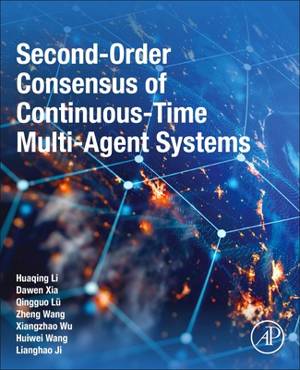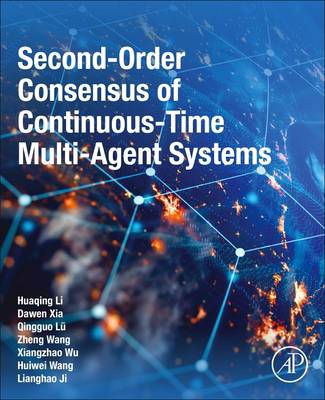
- Afhalen na 1 uur in een winkel met voorraad
- Gratis thuislevering in België vanaf € 30
- Ruim aanbod met 7 miljoen producten
- Afhalen na 1 uur in een winkel met voorraad
- Gratis thuislevering in België vanaf € 30
- Ruim aanbod met 7 miljoen producten
Second-Order Consensus of Continuous-Time Multi-Agent Systems
Huaqing Li, Dawen Xia, Qingguo Lü, Zheng Wang, Xiangzhao Wu, Huiwei Wang, Lianghao JiOmschrijving
Second-Order Consensus of Continuous-Time Multi-Agent Systems focuses on the characteristics and features of second-order agents, communication networks, and control protocols/algorithms in continuous consensus of multi-agent systems. The book provides readers with background on consensus control of multi-agent systems and introduces the intrinsic characteristics of second-order agents' behavior, including the development of continuous control protocols/algorithms over various types of underlying communication networks, as well as the implementation of computation- and communication-efficient strategies in the execution of protocols/algorithms. The book's authors also provide coverage of the frameworks of stability analysis, algebraic criteria and performance evaluation.
On this basis, the book provides an in-depth study of intrinsic nonlinear dynamics from agents' perspective, coverage of unbalanced directed topology, random switching topology, event-triggered communication, and random link failure, from a communication networks' perspective, as well as leader-following control, finite-time control, and global consensus control, from a protocols/algorithms' perspective. Finally, simulation results including practical application examples are presented to illustrate the effectiveness and the practicability of the control protocols and algorithms proposed in this book.
Specificaties
Betrokkenen
- Auteur(s):
- Uitgeverij:
Inhoud
- Aantal bladzijden:
- 194
- Taal:
- Engels
Eigenschappen
- Productcode (EAN):
- 9780323901314
- Verschijningsdatum:
- 22/02/2021
- Uitvoering:
- Paperback
- Formaat:
- Trade paperback (VS)
- Afmetingen:
- 190 mm x 235 mm
- Gewicht:
- 344 g

Alleen bij Standaard Boekhandel
Beoordelingen
We publiceren alleen reviews die voldoen aan de voorwaarden voor reviews. Bekijk onze voorwaarden voor reviews.











